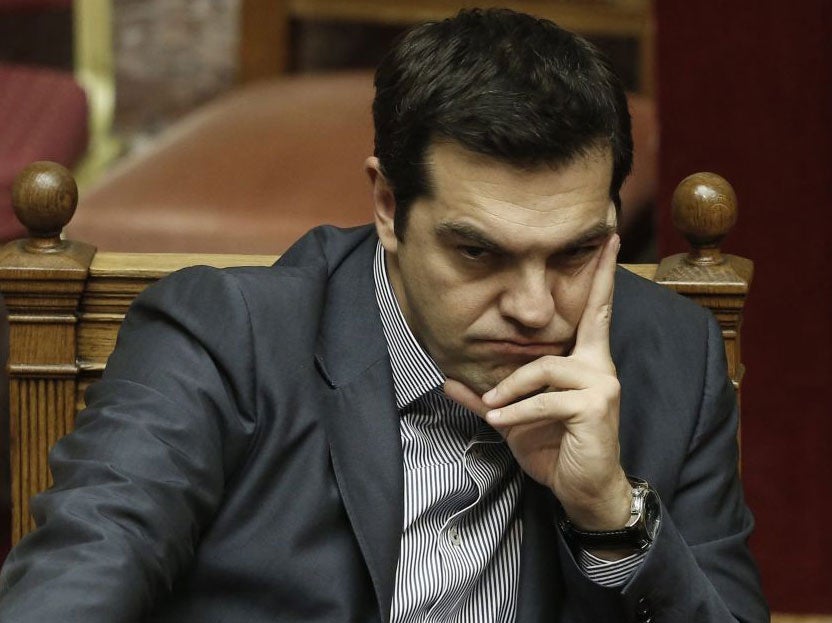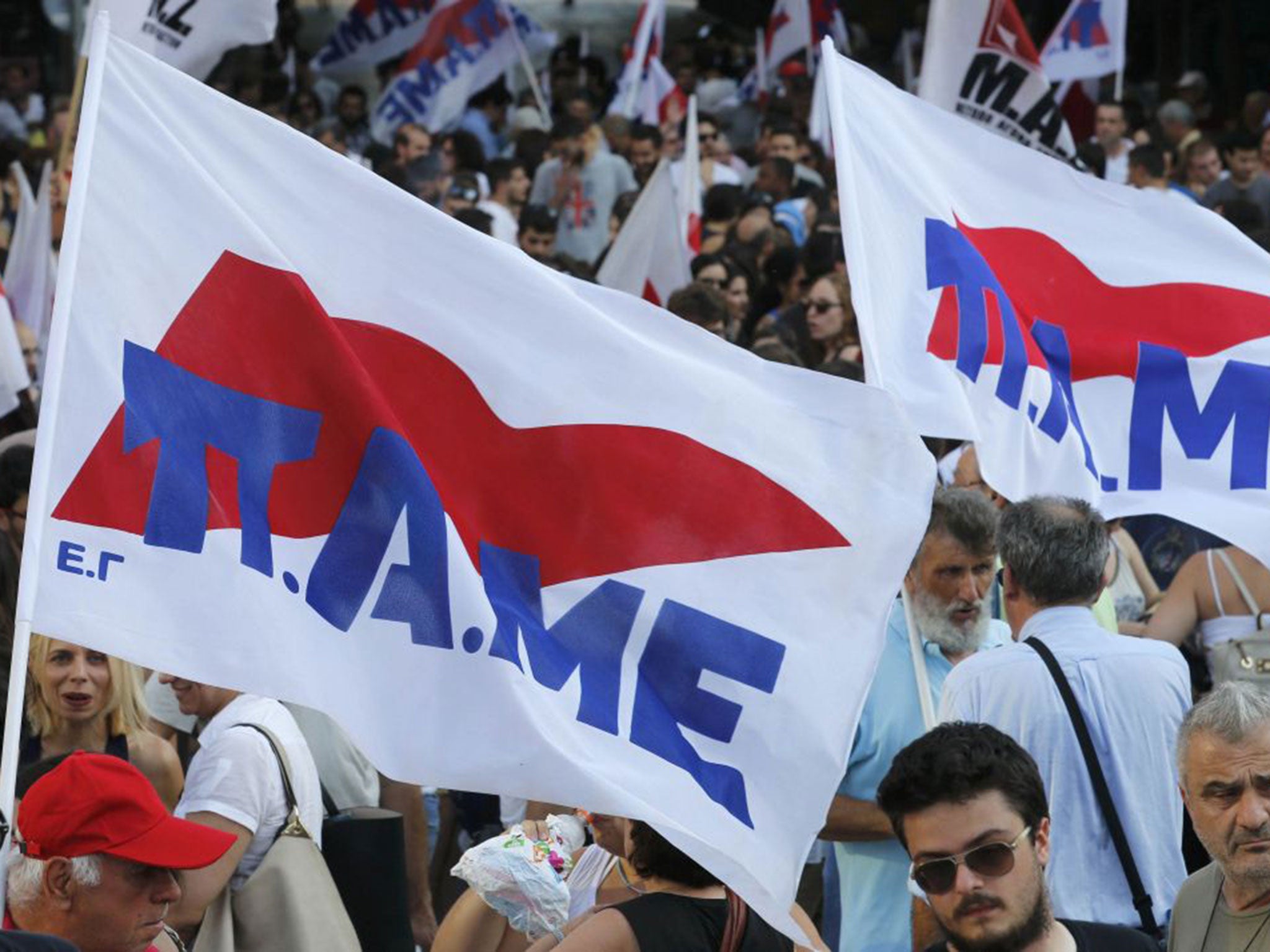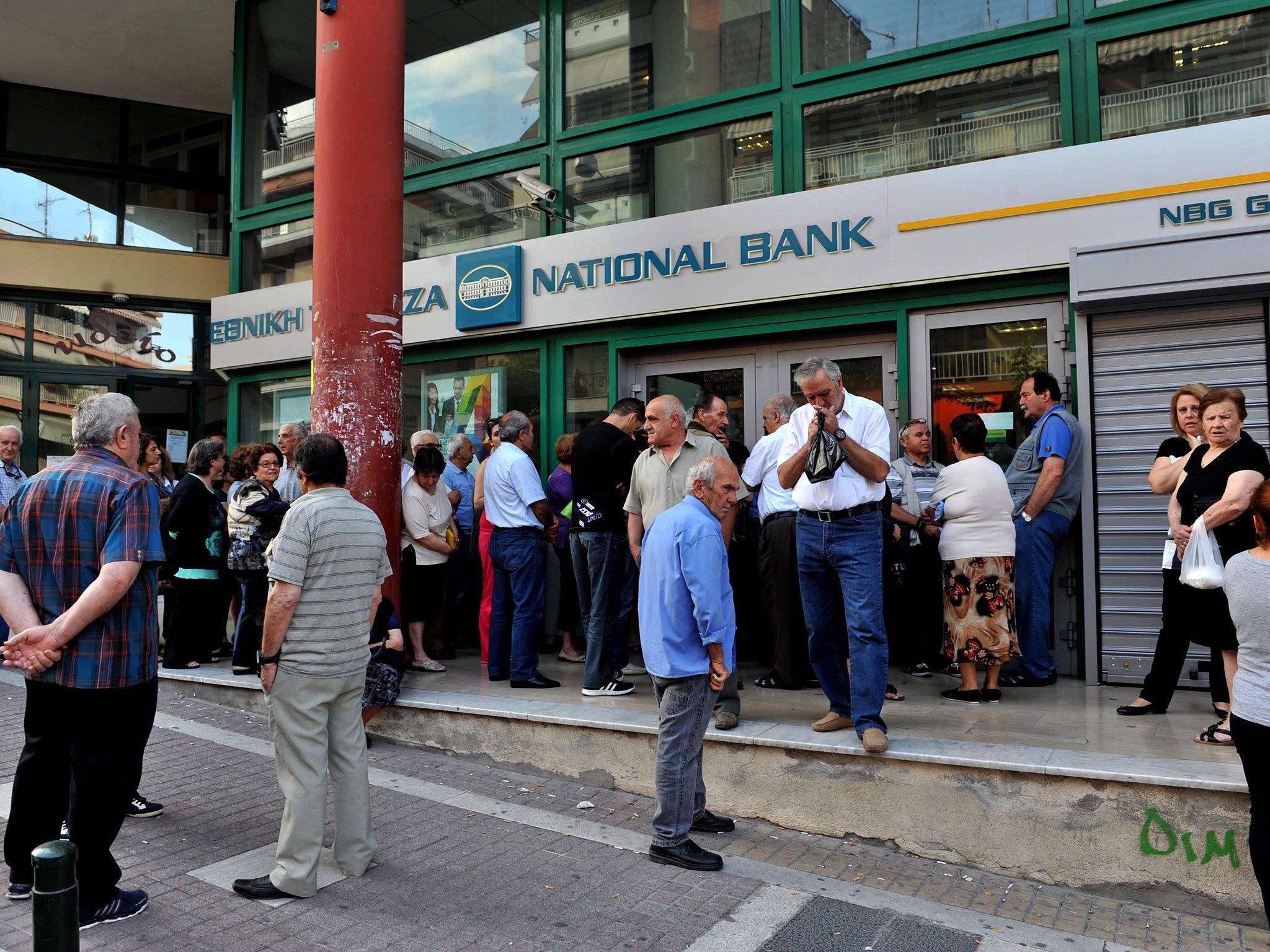Greece debt crisis: Alexis Tsipras warns of 'minefield' of negotiations after parliament supports new bail-out package despite rebellion
Several Syriza MPs were absent, abstained or voted against the proposals that included many of the austerity measures rejected in a referendum

Your support helps us to tell the story
From reproductive rights to climate change to Big Tech, The Independent is on the ground when the story is developing. Whether it's investigating the financials of Elon Musk's pro-Trump PAC or producing our latest documentary, 'The A Word', which shines a light on the American women fighting for reproductive rights, we know how important it is to parse out the facts from the messaging.
At such a critical moment in US history, we need reporters on the ground. Your donation allows us to keep sending journalists to speak to both sides of the story.
The Independent is trusted by Americans across the entire political spectrum. And unlike many other quality news outlets, we choose not to lock Americans out of our reporting and analysis with paywalls. We believe quality journalism should be available to everyone, paid for by those who can afford it.
Your support makes all the difference.The Greek Prime Minister has said his country is facing a “minefield” of debt negotiations and austerity after parliament backed a package of economic reforms to secure a new bailout.
Alexis Tsipras won cross-party support for a vote late on Friday night but some members of his own left-wing Syriza party, which was elected largely for its anti-austerity stance, rebelled.
Greek finance ministers will meet their Eurogroup counterparts later today in Brussels to decide on the request for assistance from the European Stability Mechanism bailout fund and a full meeting of leaders followed by an EU summit is scheduled for tomorrow.

If a deal is not struck, Greek banks could run out of money and the country could be forced to leave the Euro.
Banks are already closed, with a €60 (£43) daily limit imposed on cash machine withdrawals that has been in place since 28 June, and anti-austerity protesters gathered outside Parliament as last night’s vote was taken.
Mr Tsipras said his government had made mistakes during its six-month tenure but insisted the latest proposal contains measures that would help the economy and, if approved, unlock sufficient financing for the country to end its its crisis and tackle its massive debt.
“There is no doubt that for six months now we've been in a war,” the Prime Minister said, adding that his government had lost some “difficult battles”.
“Now I have the feeling we've reached the boundary line,” he added. “From here on there is a minefield, and I don't have the right to dismiss this or hide it from the Greek people.”

Sparking concerns over the stability of the embattled Greek government, 10 members abstained or voted against the reforms, including energy minister Panagiotis Lafazanis, deputy labour minister Dimitris Stratoulis and the speaker of parliament, Zoe Constantopoulou.
"The government is being totally blackmailed to acquiesce to something which does not reflect what it represents," Ms Constantopoulou said.
The former finance minister, Yanis Varoufakis, was among seven more Syriza MPs who were absent for the vote, putting the government’s majority in jeopardy.
Panos Kammenos, the defence minister who heads the government's junior coalition member Independent Greeks, said he supported the proposal, even though it goes against his party's principles, and feared that failing to secure a deal with creditors could cause civil unrest.
"I want to state clearly, I am not afraid of Grexit," he added. "I am afraid of one thing: national division and civil war."
Only 32 MPs voted “no” to the package, with 251 supporting it, but several politicians spoke out against the tax rises and spending cuts being approved just days after similar measures were rejected by Greek voters in a referendum.
The proposals request €53.5 billion (£38 billion) to cover Greece's debts until 2018 in the country’s third bailout.
The European Commission, European Central Bank and International Monetary Fund have indicated early approval by telling eurozone governments they are a basis for negotiation “under certain conditions”, following a joint assessment.
"The priority now is to have a positive outcome to the negotiations,“ Mr Tsipras said in a statement after the vote. ”Everything else in its own time."
The package would bring in 23 per cent unified VAT, scrap tax breaks for wealthy islands, hike taxes for shipping companies, phase out a “solidarity grant” for pensioners, privatise ports and telecoms and slash defence spending.
French President Francois Hollande described the measures as "serious and credible" but ministers from Germany, which has contributed more to bailouts than any other country, sounded wary and ruled out any debt restructuring that would lower its real value.
Any deal would also have to be endorsed by national parliaments in the Eurozone, which must also formally approve the loan negotiations being started.
The country has received two bailouts worth €240 billion from the EU and IMF since 2010 but its economy has shrunk by a quarter and unemployment is topping 25 per cent.
Additional reporting by agencies
Join our commenting forum
Join thought-provoking conversations, follow other Independent readers and see their replies
Comments